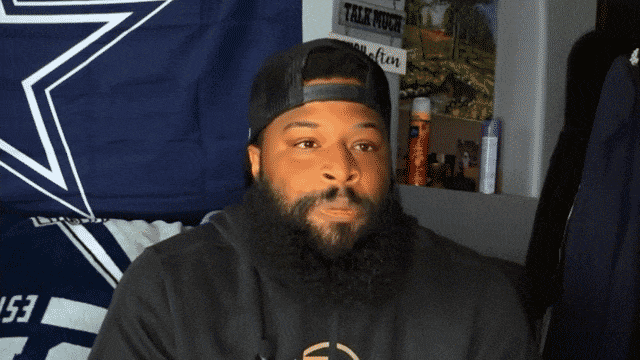“Texas Tough” McKay Law
Texas Single Vehicle Accident Lawyer
Navigating the aftermath of a single-vehicle accident can be overwhelming, but McKay Law is here to provide clarity and strength when you need it most. Specializing in single-vehicle accident cases across Texas, McKay Law has built a reputation for delivering exceptional legal representation tailored to each client’s unique situation. With a steadfast commitment to justice, they work tirelessly to protect victims’ rights and advocate for the compensation they deserve. At McKay Law, you’re not just another case—you’re a priority. Their personalized approach ensures you have a trusted legal partner to guide you through the complexities of the legal process, giving you the peace of mind to focus on what matters most: your recovery.
NO FEES UNLESS WE WIN!
We only get paid when you get paid.
Receive Immediate Medical Care
Get the medical attention you need with no out-of-pocket cost in most cases.
24/7 Access To Us
We are here for you 24/7 so you can focus on healing.
Client Satisfaction
McKay Law has a reputation to be proud of with 300+ 5 star Google Reviews.
Texas Single Vehicle Accident Attorney | McKay Law
Single-vehicle accidents can be just as complex as multi-vehicle collisions when it comes to determining fault and pursuing claims. Whether it’s a result of poor road conditions, mechanical failures, or unforeseen obstacles, these accidents require a deep understanding of the law to navigate successfully.
At McKay Law, we specialize in providing expert legal representation for individuals involved in such accidents. Our team carefully investigates every detail of your case, from gathering evidence to identifying potential liabilities, ensuring that our clients receive the justice and compensation they deserve.
We are dedicated to guiding you through the legal process with professionalism and care, so you can focus on recovery while we handle the rest.
Understanding Single Vehicle Accidents in Texas
Single-vehicle accidents in Texas, like in other states, involve only one vehicle and can occur for various reasons. Here’s an overview to help you understand these types of accidents:
Common Causes of Single-Vehicle Accidents
- Driver Error: Distracted driving, speeding, fatigue, or impaired driving are frequent contributors.
- Road Conditions: Wet, icy, or poorly maintained roads can lead to loss of control.
- Obstacles: Animals, debris, or objects on the road can cause drivers to swerve and crash.
- Mechanical Failures: Issues like tire blowouts or brake failures can result in accidents.
- Weather: Fog, heavy rain, or strong winds can reduce visibility and control.
Types of Single-Vehicle Accidents
- Run-Off-Road Crashes: The vehicle leaves the roadway and may hit a tree, pole, or ditch.
- Rollovers: Common with SUVs or trucks, especially during sharp turns or high-speed maneuvers.
- Collisions with Fixed Objects: Hitting guardrails, signs, or other stationary objects.
- Animal Collisions: Particularly common in rural areas.
Legal and Insurance Implications
- Fault Determination: In most cases, the driver is considered at fault unless external factors (e.g., road defects) are proven.
- Insurance Claims: Comprehensive or collision coverage is typically required to cover damages in single-vehicle accidents.
- Liability: If the accident was caused by a road hazard or another party’s negligence, liability may shift.
Preventative Measures
- Drive at safe speeds and adjust for weather or road conditions.
- Avoid distractions and stay alert, especially on rural or poorly lit roads.
- Maintain your vehicle regularly to prevent mechanical issues.
- Be cautious in areas with wildlife or known hazards.
Understanding these factors can help drivers in Texas and beyond stay safe and navigate the aftermath of single-vehicle accidents more effectively.
Lindsey McKay Takes Texas Single Vehicle Accident Cases Seriously
Single-vehicle accidents can be both physically and emotionally devastating, often leaving victims grappling with medical bills, lost wages, and insurance battles. If you’re in Texas and struggling after such an accident, Lindsey McKay is here to help. With her extensive expertise and unrelenting dedication, she provides compassionate legal representation tailored to the challenges of single-vehicle accident cases.
Why Single-Vehicle Accident Cases Are Unique
Single-vehicle accidents are often misunderstood. Unlike collisions involving multiple vehicles, these cases require a detailed investigation to uncover the root cause. While the assumption may be that the driver was solely at fault, this is not always true. Factors like hazardous road conditions, vehicle defects, or even negligent design or maintenance of public roads can play a critical role.
Lindsey McKay understands these complexities, leveraging her deep knowledge of Texas law to uncover all possible contributing factors to your accident. She works diligently to ensure that liability is accurately determined so that you receive the justice and compensation you deserve.
Common Challenges Victims Face in Single-Vehicle Accident Cases
Victims of single-vehicle accidents often face numerous hurdles when pursuing compensation. Some of the most common include:
- Proving Liability: Determining fault in single-vehicle accidents isn’t always straightforward. Was an unseen road hazard the cause? Could a manufacturing defect in the vehicle have been to blame? Lindsey McKay meticulously investigates every aspect of your case to identify liability.
- Dealing With Insurance Companies: Insurance companies often try to minimize payouts by shifting blame onto the driver. With Lindsey McKay at your side, you’ll have a legal advocate who knows how to counter these tactics effectively and fight for what you’re rightfully owed.
- Understanding Contributing Factors: From poor weather conditions to improperly maintained highways or defective auto parts, numerous variables can influence the outcome of your case. Lindsey ensures each element is examined thoroughly during your claim.
Her commitment to addressing these challenges is what sets Lindsey McKay apart.
Lindsey McKay’s Approach to Single-Vehicle Accident Cases
Lindsey McKay takes a client-centered approach to every single-vehicle accident case she handles. Her priority is ensuring that you feel supported and informed at every step of the process. Here’s how she approaches these complex cases:
1. Comprehensive Investigation
A thorough investigation is crucial to building a strong claim. Lindsey collaborates with accident reconstruction specialists, engineers, and other industry experts to uncover critical evidence. From analyzing road conditions to reviewing vehicle maintenance logs, her meticulous approach ensures no detail is overlooked.
2. Clear and Compassionate Communication
Navigating the aftermath of an accident can be overwhelming, but with Lindsey, you’ll never feel left in the dark. She takes the time to explain your legal options clearly and ensures you understand every decision being made.
3. Aggressive Representation
Whether negotiating with insurance companies or taking your case to court, Lindsey McKay advocates fiercely on your behalf. Her tenacity and depth of knowledge leave no room for doubt—she’s committed to securing the compensation you deserve.
4. Focus on Your Well-Being
More than just a legal representative, Lindsey McKay genuinely cares about her clients’ recovery and future. She understands the hardships caused by single-vehicle accidents and works tirelessly to ease the burden, allowing you to rebuild your life with confidence.
Why Choose Lindsey McKay?
Lindsey McKay isn’t just another attorney; she’s your advocate, guide, and ally during one of the most challenging times in your life. Here’s what makes her the go-to choice for single-vehicle accident cases in Texas:
- Proven Expertise: With years of experience handling personal injury cases, Lindsey has the skills and knowledge needed to take on even the toughest situations.
- Dedication to Justice: She is deeply committed to ensuring that victims of negligence receive the compensation they are entitled to.
- Client-Focused Service: Lindsey takes pride in treating every client with respect, compassion, and empathy.
- Local Knowledge: An expert in Texas law, Lindsey understands the unique legal landscape and how to maximize outcomes for those she represents.
Common Causes of Single-Vehicle Accidents
Understanding what caused your accident is key to building a successful claim. Here are a few potential contributing factors Lindsey McKay will investigate when handling your case:
- Road Conditions: Poorly maintained roads, potholes, faulty signage, or inadequate lighting can create dangerous situations for drivers.
- Vehicle Defects: A malfunction in the braking system, tire blowout, or steering failure could be tied to negligence by the manufacturer or repair shop.
- Weather Elements: Sudden changes in weather—like heavy rain or icy conditions—can play a role in single-vehicle accidents.
- Negligence of Third Parties: Did a trucking company fail to secure a load properly? Was there debris on the highway that should’ve been cleared? Lindsey leaves no stone unturned when determining the cause.
How Lindsey McKay Supports Accident Victims
The aftermath of a single-vehicle accident can feel overwhelming, but Lindsey McKay is here to guide you every step of the way. She helps her clients:
- File timely and accurate claims
- Navigate the complexities of insurance negotiations
- Secure fair compensation for medical bills, lost income, and pain and suffering
- Prepare for trial, if necessary, with confidence and strategy
Her tireless commitment to seeking justice ensures her clients receive the support they need to move forward.
Contact Lindsey McKay for a Free Consultation
If you’ve been involved in a single-vehicle accident in Texas, don’t face the challenges alone. Lindsey McKay is ready to help you uncover the truth, hold the responsible parties accountable, and secure the financial recovery you deserve.
Reach out today for a free, no-obligation consultation and take the first step toward rebuilding your life. Call Lindsey McKay at 1-866-380-8302.
Your Advocate, Your Partner, Your Voice
When it comes to single-vehicle accident cases, Lindsey McKay is more than an attorney—she’s a trusted partner who fights tirelessly for her clients. Don’t wait—get the legal representation you need and the compassion you deserve.
What Are The Most Common Types of Single Vehicle Crash Injuries In Texas?
Single-vehicle crashes can result in a variety of injuries, depending on factors like the speed of the crash, the type of vehicle, and whether safety measures like seat belts were used. Here are some of the most common injuries associated with single-vehicle crashes:
- Whiplash – A neck injury caused by sudden back-and-forth movement.
- Broken or Fractured Bones – Common in high-impact collisions.
- Head Injuries – Including concussions and traumatic brain injuries.
- Spinal Cord Injuries – Leading to potential paralysis or chronic pain.
- Internal Bleeding – Often from blunt force trauma.
- Cuts and Scrapes – From shattered glass or debris.
- Emotional Injuries – Such as PTSD or anxiety following an accident
Each crash is unique, and the injuries sustained can vary widely. It’s crucial to seek medical attention immediately after a crash, even if injuries seem minor, as some conditions may not show symptoms right away.
What Damages Can I Receive from a Texas Single Vehicle Accident Claim?
Single-vehicle accidents can be devastating, leaving drivers and passengers to face physical injuries, property damage, and financial strain. While these types of accidents might appear straightforward, they often come with questions about liability and compensation. By understanding the damages you may be eligible to claim, you can better protect yourself and ensure you receive the financial recovery you deserve.
This guide will break down the types of damages you can claim in a Texas single-vehicle accident, using real-world examples to illustrate their application. We’ll also highlight why consulting a Texas personal injury attorney is a critical step to navigating the complexities of these claims.
What Is a Single-Vehicle Accident?
A single-vehicle accident involves only one car. Common scenarios include skidding off the road due to bad weather, hitting an obstacle like a fallen tree, or losing control to avoid a negligent driver or wild animal.
While collisions with other vehicles are excluded from this category, determining fault in a single-vehicle accident can be more complex than it seems. For instance, external factors like poor road conditions, defective auto parts, or another driver’s reckless behavior may contribute to the incident. These variables directly affect the types and amounts of damages you can claim.
The Importance of Determining Fault
Determining fault is crucial because Texas follows a modified comparative negligence rule. This means if another party or entity partially caused your accident, you can still pursue compensation—but your recoverable damages will be reduced by your percentage of fault.
Can You File a Claim if the Accident Was Your Fault?
Even if you’re partially or entirely at fault, you may still be able to recover certain damages, for instance, through your own insurance coverage, such as medical payments coverage or comprehensive property damage coverage. Consulting with a personal injury attorney can clarify your eligibility.
Types of Damages You Can Claim
1. Medical Expenses
Medical expenses are often the highest cost after a single-vehicle accident. This category includes costs for emergency care, hospital stays, surgery, physical therapy, prescription medications, and even future medical treatments.
Example:
If you swerved to avoid hitting a deer and crashed into a tree, leading to a broken leg, you could claim compensation for the immediate costs of your ER visit and the ongoing expenses for rehabilitation sessions.
2. Property Damage
Damage to your vehicle and any personal belongings inside it, such as electronics, can also be claimed. If the crash occurred due to external factors beyond your control—like a faulty guardrail or poor road maintenance—you may have grounds to seek compensation from the responsible entity.
Example:
Suppose a poorly maintained road caused you to lose control and crash. Government entities responsible for road upkeep could be held liable for the damages to your car and possessions.
3. Lost Wages
After an accident, injuries may keep you away from work for an extended period. You can claim compensation for the income you lose during your recovery.
Example:
A truck driver who suffers a severe wrist injury in a single-vehicle accident may be unable to drive or handle their regular responsibilities for months. Their lost wages and even diminished earning capacity if they cannot continue the same type of work can be part of the claim.
4. Pain and Suffering
Pain and suffering cover the physical discomfort and emotional distress resulting from an accident. This type of damage is non-economic, meaning it doesn’t have a fixed monetary value and requires careful calculation.
Example:
If you’re dealing with chronic back pain or PTSD from a collision, you could seek compensation under pain and suffering damages. Texas law considers factors like the severity of your injuries and their impact on your daily life when evaluating these claims.
5. Other Recoverable Damages
You may also be entitled to compensation for additional costs, such as:
- Loss of Consortium: If the accident negatively affects your relationship with your spouse, this damage category may apply.
- Disability or Disfigurement: If the accident leaves permanent scars or results in a disability, the financial award may cover these consequences.
- Household Services: If your injuries limit your ability to perform everyday chores, the cost of hiring help could be claimed.
Why You Need a Personal Injury Attorney
Navigating a single-vehicle accident claim in Texas requires legal expertise, especially when it comes to proving fault or negotiating with insurance companies. An experienced personal injury attorney can help by:
- Investigating the accident’s cause, such as defective vehicle components, unsafe road conditions, or third-party negligence.
- Gathering medical records, police reports, and other evidence to build a strong case.
- Calculating all recoverable damages, ensuring you don’t miss out on fair compensation.
- Negotiating with insurance adjusters who may downplay your claim’s value.
Example:
Consider a case where you hit a utility pole due to malfunctioning brakes in your car. An attorney can help you determine whether the issue stemmed from a manufacturing defect, allowing you to pursue damages from the carmaker or parts supplier.
Key Takeaways
A Texas single-vehicle accident doesn’t have to leave you overwhelmed and financially strained. Whether you’re dealing with medical expenses, property damage, or emotional trauma, understanding your rights and the damages you can claim is essential to moving forward.
By consulting a Texas personal injury attorney, you’ll have an advocate who can guide you through the claims process, negotiate with insurers, and fight for the compensation you deserve.
If you’ve been involved in a single-vehicle accident, don’t wait. Seek legal advice to protect your interests and explore all your options for recovery.
The Texas Tough Difference
See why so many others choose McKay Law, PLLC
With over 300 five-star reviews, McKay Law, your local Personal Injury Law Firm has earned the trust and gratitude of our clients. Every case we handle is unique, and every client’s story matters. Don’t just take our word for it—hear directly from our clients about their experiences and why they confidently recommend us to others.
Single Vehicle Accident FAQs
A single-vehicle accident involves only one vehicle. Common examples include hitting a tree, guardrail, or animal, sliding off the road, or rolling over.
In most cases, the driver is considered at fault. However, there are exceptions, such as accidents caused by:
- Poor road conditions (e.g., potholes, ice)
- Mechanical failure (e.g., brake failure)
- Swerving to avoid another driver or animal
It depends on your coverage:
- Collision coverage: Typically covers damage to your vehicle.
- Comprehensive coverage: Covers non-collision incidents like hitting an animal.
- Liability coverage: Won’t cover your own damages but may cover others if applicable.
- Ensure safety: Check for injuries and move to a safe location if possible.
- Call for help: Contact emergency services if needed.
- Document the scene: Take photos, note road conditions, and gather details.
- Notify your insurer: Report the accident promptly.
Yes, if external factors contributed (e.g., road hazards, defective parts). Gather evidence like photos, witness statements, or police reports to support your case.
If you’re found at fault, your rates may rise. However, some insurers offer accident forgiveness for first-time incidents.
Hitting an animal is typically covered under comprehensive insurance, not collision. Be sure to document the incident and report it to your insurer. Avoid swerving to prevent hitting an animal, as this can lead to more severe accidents.
In many cases, yes. Filing a police report is especially important if:
- There’s significant damage to your vehicle.
- You’ve hit public property (e.g., a guardrail or sign).
- You need documentation for your insurance claim.
If you damage property (e.g., a fence, mailbox, or road sign), you’re responsible for reporting it and covering the costs. Your liability insurance may cover these damages, so notify your insurer immediately.
Yes, weather conditions like ice, rain, or fog can contribute to accidents. However, drivers are generally expected to adjust their driving to match conditions. While weather may be a factor, you could still be found at fault if you were driving too fast or not exercising caution.






